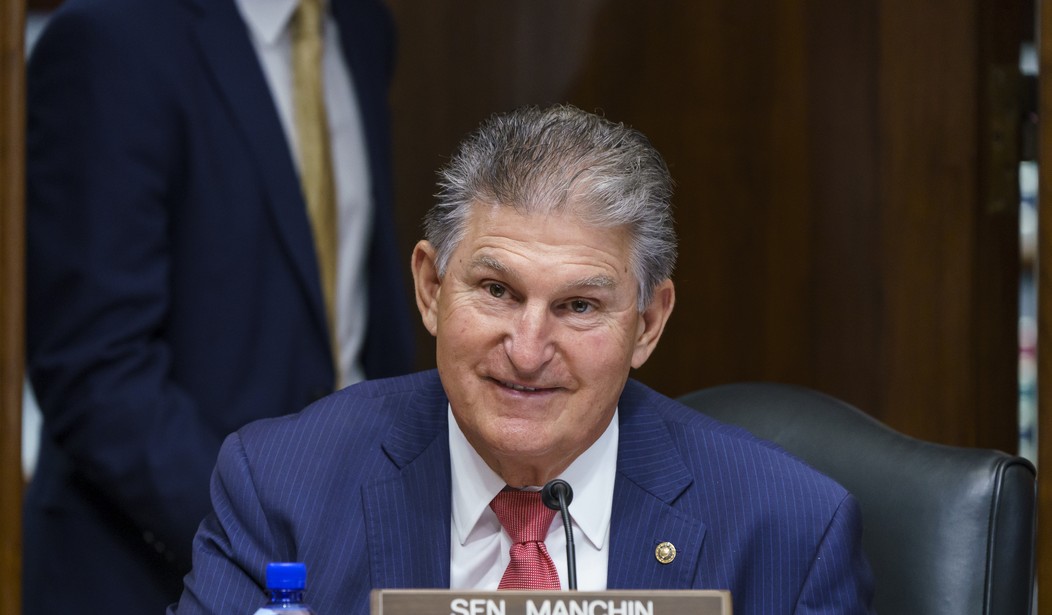Friday night saw an increased amount of drama over Build Back Better, as progressive Sen. Bernie Sanders (I-VT) called out moderate Sen. Joe Manchin (D-WV) in an op-ed for the Charleston Gazette-Mail, an outlet from Manchin's state. In response, Manchin called out Sanders in a statement over Twitter, referring to the latter as "a self-declared Independent socialist." Manchin may already be winning, though. That same night, Cora Davenport reported for The New York Times that a major part of the agenda may be changing, and in Manchin's favor.
Breaking News: The heart of President Biden's climate agenda — a push to replace coal- and gas-fired power plants — is said to likely be cut from the budget bill because Senator Joe Manchin opposes it. https://t.co/h73QT7NDpe
— The New York Times (@nytimes) October 15, 2021
As Davenport wrote:
WASHINGTON — The most powerful part of President Biden’s climate agenda — a program to rapidly replace the nation’s coal- and gas-fired power plants with wind, solar and nuclear energy — will likely be dropped from the massive budget bill pending in Congress, according to congressional staffers and lobbyists familiar with the matter.
Senator Joe Manchin III, the Democrat from coal-rich West Virginia whose vote is crucial to passage of the bill, has told the White House that he strongly opposes the clean electricity program, according to three of those people. As a result, White House staffers are now rewriting the legislation without that climate provision, and are trying to cobble together a mix of other policies that could also cut emissions.
...
But in recent days Mr. Manchin indicated to the administration that he was now completely opposed to a clean energy program, people familiar with the discussions said.
As a result, White House staffers are scrambling to calculate the impact on emissions from other climate measures in the bill, including tax incentives for renewable energy producers and tax credits for consumers who purchase electric vehicles. Unlike a clean energy program, tax incentives tend to expire after a set period of time, and do not have the market-shifting power of a more durable strategy.
...
It is also possible that Democrats may try to push through the clean electricity program as a stand-alone bill — but the timeline for doing so is narrowing, with the 2022 midterm elections approaching.
Recommended
Sen. Sanders is really likely to be less than pleased right now. He has a particular preoccupation with climate change and referred to it as "an existential threat" in his op-ed mentioned above.
The Biden administration is also rather focused on the issue. We hear about what they refer to as the "climate crisis" on a regular basis. Climate czar John Kerry has even been willing to forgo addressing China's human rights abuses and acts of genocide in order to get the Chinese Communist Party to come to the table on addressing climate change. When asked about it, he responded that "life is full of tough choices."
It was a particularly huge deal for the White House that Xi Jinping attended Biden's virtual climate summit in April, where he made all the necessary, and probably false, promises, and yet it's still not entirely likely China will do enough.
On Thursday it was announced that not only does Biden plan to go to Glasgow for a United Nations climate summit, he's sending thirteen cabinet members. Ella Nilsen in her reporting for CNN referred to it as how "President Joe Biden is planning a show of strength."
There might not be "a show of strength" after all. As Davenport also wrote:
The setback also means that President Biden will have a weakened hand when he travels to Glasgow in two weeks for a major United Nations climate change summit. He had hoped to point to the clean electricity program as evidence that the United States, the world’s largest emitter of planet-warming pollution, was serious about changing course and leading a global effort to fight climate change. Mr. Biden has vowed that the United States will cut its emissions 50 percent from 2005 levels by 2030.
...
“This will create a huge problem for the White House in Glasgow,” said David G. Victor, co-director of the Deep Decarbonization Initiative at the University of California, San Diego. “If you see the president coming in and saying all the right things with all the right aspirations, and then one of the earliest tests of whether he can deliver falls apart, it creates the question of whether you can believe him.”
Ironically enough, the White House, also on Friday, released a fact sheet on the "Biden Administration Roadmap to Build an Economy Resilient to Climate Change Impacts."
It's not merely Sen. Sanders who is likely to throw a hissy fit. Davenport points to other threats of disunity:
Senator Tina Smith, Democrat of Minnesota and the chief author of the program, said that while dropping it might win Mr. Manchin’s vote on the budget bill, it could cost hers — and those of other Democrats focused on the environment.
“We must have strong climate action in the Build Back Better budget,” she said. “I’m open to all approaches, but as I’ve said, I will not support a budget deal that does not get us where we need to go on climate action. There are 50 Democratic senators and it’s going to take every one of our votes to get this budget passed.”
It's amazing to speculate what must have happened for there to be such Democratic disunity and disarray, as Manchin continues to keep holding the cards.

























Join the conversation as a VIP Member